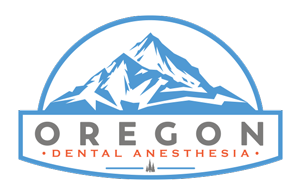FAQ
Frequently Asked Questions
A dentist anesthesiologist is a licensed dentist who has completed a three-year postdoctoral residency in anesthesia after completing dental school. The postdoctoral residency includes heavy case requirements of all types (pediatric, adult, special need) in order to graduate the program.
Anesthesia during a dental appointment will greatly lessen the discomfort and emotional stress that many patients experience during either routine or complex procedures. Patients who are unable to tolerate dental care are able to have their needs taken care of with the help of anesthesia. Those patients who have longer treatment appointments or those who would like to have anesthesia for their comfort are also potential candidates. Anesthesia can benefit many patients with a variety of needs.
Yes. Oregon Dental Anesthesia is a mobile practice and will arrive at the dentist’s office with all the necessary equipment and medications to safely administer anesthesia in the office setting while the dental work is completed by the primary dentist. The equipment used for monitoring during the appointment and during recovery is the same as what is used in a hospital setting.
Dr. Kobernik will provide a preoperative assessment customized to the patient’s medical history and needs. Patients will have an opportunity to discuss the advantages and disadvantages of their options for care with Dr. Kobernik. Many patients who benefit from deeper levels of sedation are those who have:
- A fear of dental treatment.
- A history of a traumatic dental experience.
- A low pain threshold or difficulty getting numb.
- Claustrophobia
- Dental treatment plans that are complex and will require an extended amount of time.
- The inability to understand why care is being given (children, patients with dementia or Alzheimer’s, patients with diminished mental capacity, etc.).
- The desire or need to condense their treatment appointments into one longer treatment appointment.
If there is food or liquid in the stomach at the time of anesthesia, there is an increased risk of regurgitation leading to pulmonary aspiration during the procedure. All patients are to strictly follow the guidelines given regarding fasting prior to anesthesia:
- No solid food for 8 hours prior to appointment.
- Clear liquids only for 2 hours prior to appointment.
- For children still breastfeeding, no breast milk should be given 4 hours prior to care.
- Infants should not have formula 6 hours prior to care.
Patients will be provided with a written copy and a verbal confirmation via phone prior to the appointment.
Oregon Dental Anesthesia will provide the patient or parent with a form to submit to the insurance company if requesting reimbursement is desired. There are a variety of dental plans and it is recommended that patients contact the insurance company prior to the appointment to see if the anesthesia will be covered. Because any insurance policy is a contract between the patient and the insurance company contacting them directly is the best means of communication.
Anesthesia fees are billed at $200 every 15 minutes. See our financial policy for details. We strive to provide the safest, most appropriate anesthesia technique for each individual case. Some offices have negotiated rates on the behalf of their patients and those rates will be honored by Dr. Kobernik.

